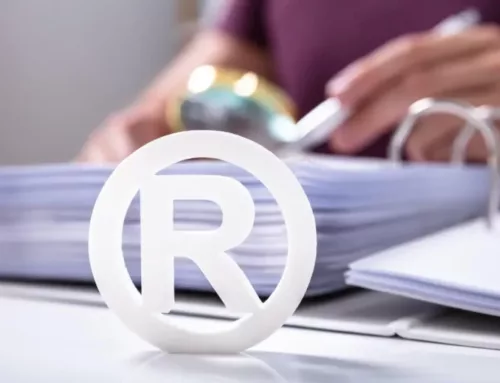Companies that are in the process of filing for a trademark are usually looking to complete the process as early as possible to ensure that their branding and intellectual property are protected. While most trademark applications are filed based on the use-in-commerce standard under Section 1(a) or the intent-to-use standard according to Section 1(b), foreign applicants may have another option. Trademark filings under 44(d), also known as stealth filings, allow qualifying applicants to obtain an earlier filing date for their United States trademark by filing an earlier foreign trademark application. The team of experienced intellectual property lawyers at War IP Law, PLLC, helps clients determine the best trademark filing strategy for their businesses. If you are looking for more information on 44(d) trademark filings and other intellectual property matters, consider calling (202) 800-3754 today to schedule a consultation.
What Are the Requirements for a Section 44(d) Trademark Application?
The United States Patent and Trademark Office (USPTO) has set the following requirements for filing a 44(d) trademark application:
- The applicant must have a country of origin that is included in an international treaty or agreement with the United States that grants a right of priority to nationals of the United States
- The foreign application that provides the claim’s basis needs to be filed in a nation that is a party to either a treaty or agreement with the United States providing a right of priority
- Qualifying applicants must file their United States trademark application within six months of the foreign application
Foreign trademark applicants that do not meet the first two criteria will need to file their USPTO trademark application under either Section (1a) or Section 1(b) instead.
Can Companies Based in the United States File Under 44(d)?
While the country-of-origin requirement may seem limiting for businesses based in the United States, the official definition of “country of origin” provides flexibility for meeting this requirement. According to the Trademark Manual of Examining Procedure (TMEP) section 1002.04, a country of origin can be defined as any one of the following:
- The country where an applicant has established a bona fide industrial or commercial operation
- The country where the applicant is domiciled
- The country in which the applicant is a national
Applicants are also entitled to provide a written statement that declares that they had established an industrial or commercial establishment in the foreign nation where the application has been filed during the prior six months before filing the application. The trademark lawyers of War IP Law, PLLC, can help these applicants draft an effective statement that helps them to establish a country of origin for stealth trademark filings under 44(d).
Benefits of Stealth Trademark Filings Under 44(d)
Stealth trademark filings allow companies to add a layer of protection for their intellectual property. In some cases, trademark applicants may run into issues when filing under Section 1(a) or 1(b) when a third party has already filed a similar trademark. The applicant may not be aware of a similar filing if the mark has not yet shown up in the USPTO database. The stealth filing will set the official date as the date the foreign application was filed, known as a priority filing date. This will grant the 44(d) applicant a first use date, giving the applicant rights over other similar trademark applicants who filed after the foreign application was submitted.
In a standard trademark filing under Section 1(a) or 1(b), the priority date is the date that the application is filed with the USPTO. An application filed under 44(d) can grant a filing date up to six months earlier than the standard route allows. For example, Company A files a foreign trademark application in January and then files a 44(d) application with the USPTO in June. However, a similar trademark application was filed by a third party in March. Company A’s trademark application would be prioritized over the third party’s March application because the official date for the filing would be January, not June.
Criteria for a Priority Filing Date
Meeting the official requirements for filing a 44(d) application does not necessarily guarantee a priority filing date. Applicants must also meet the following criteria for priority filing dates in 44(d) applications, as established in Section 1003 of the Trademark Manual of Examining Procedure:
- The foreign trademark application must be the first application that the owner has filed in any treaty nation for the same trademark or the same products and services. The only exception is if the first application was withdrawn without any outstanding rights and has not been claimed as a basis for a right of priority
- The applicant must claim priority no more than six months after the official filing date for the foreign application
- The trademark owner is required to issue a verified statement declaring the intent to use the trademark in commerce
- The foreign trademark and the trademark included in the Section 44(d) application must be identical
- The products and services included in the Section 44(d) application must be within the same scope as those included in the foreign application
Learn More About Trademark Filing Options from an Intellectual Property Lawyer
The trademark filing process is complex, as there are a variety of filing options and potential legal complications. While hiring an attorney is not a requirement for all applicants, the USPTO requires a United States-licensed attorney for applicants domiciled outside the United States. However, applicants who are not legally required to hire an attorney can benefit from legal guidance throughout the process. An experienced trademark attorney can help clients conduct trademark research before filing, accurately prepare their applications, represent clients when dealing with the USPTO, and offer guidance in all other aspects of the application process. The team of experienced intellectual property lawyers at War IP Law, PLLC, helps our clients with all types of trademark applications, including trademark filings under 44(d). Consider calling (202) 800-3754 today to learn more about how to file a successful trademark application or to seek answers to your other intellectual property questions.






